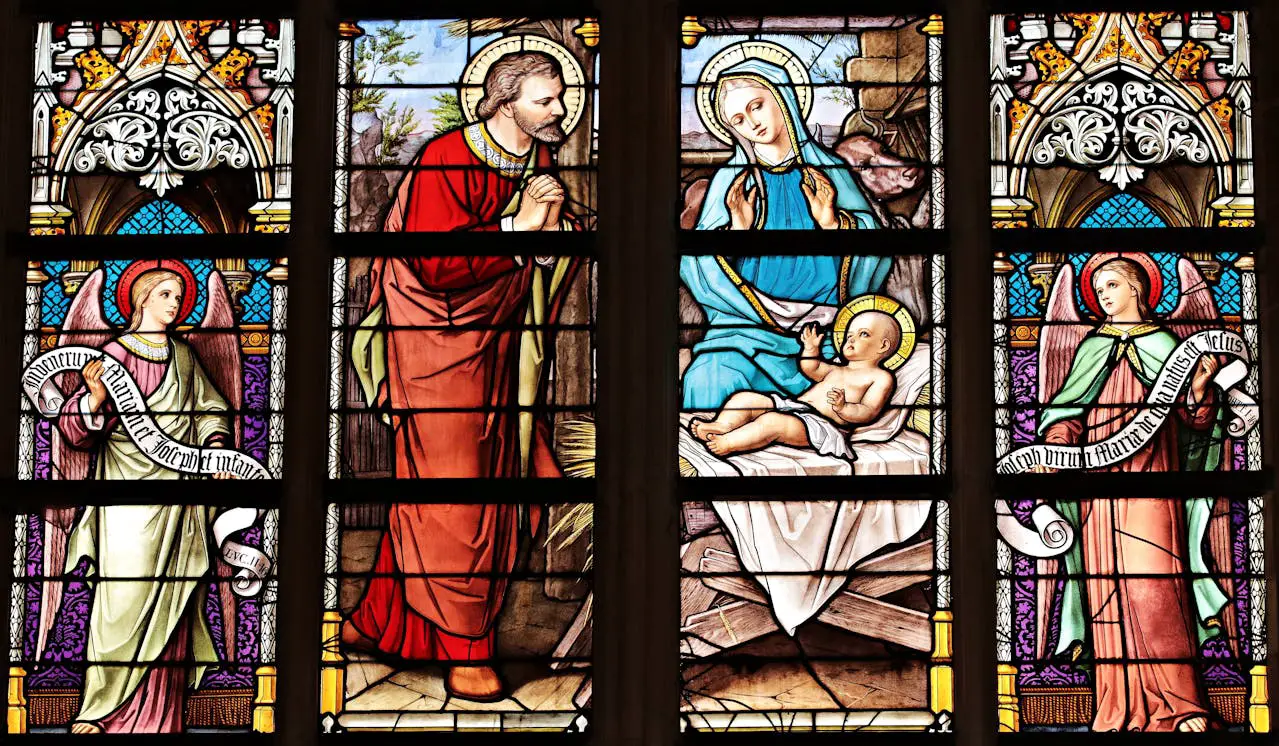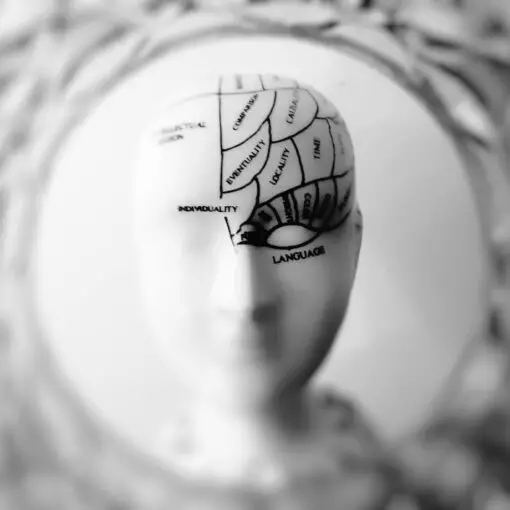Religion has been a cornerstone in societies across the globe, shaping morals and cultural practices. Despite its influence, religion faces criticism from various perspectives.

Critics argue that religion can foster division and conflict, leading to moral and ethical dilemmas. Historical contexts showcase how religious doctrines have sometimes been used to justify actions that contradict modern ethical standards. Additionally, the rise of atheism presents a socially viable alternative that challenges traditional beliefs and encourages critical thinking.
In exploring arguments against religion, it is essential to consider the influences of prominent figures who have contributed to these discussions. Their critiques often highlight the potential social and psychological impacts of religion on individuals, as well as broader society. Understanding these arguments may offer a deeper insight into the ongoing debate between faith and reason.
Key Takeaways
- Criticism of religion includes philosophical and scientific viewpoints.
- Religion’s impact is evident in ethical and cultural discussions.
- Notable figures contribute to ongoing debates about faith and reason.
Philosophical Foundations

The philosophy of religion encompasses various arguments and critiques concerning the existence of God and the relevance of religious beliefs. This section delves into key philosophical topics that challenge religious thought, including the problem of evil, existential and epistemic concerns, and the critique of theological arguments.
The Problem of Evil
The problem of evil questions how a benevolent and omnipotent God could allow suffering and evil to exist in the world. Critics argue that the presence of extreme suffering contradicts the notion of an all-powerful, all-loving deity. Philosophers like Epicurus have long debated whether free will justifies the existence of evil.
Some propose that human freedom is essential, but this often fails to address natural disasters and diseases that cause immense suffering without direct human cause. These unresolved issues make the problem of evil a significant challenge to traditional theism and belief in God.
Existential and Epistemic Concerns
Existential and epistemic concerns address the challenges in reconciling faith with human experience and knowledge. Many argue that religious belief often lacks empirical evidence, relying on subjective faith rather than objective verification. This raises questions about the epistemic validity of religious beliefs.
Existential concerns highlight the struggle to find meaning and purpose within religious frameworks, particularly in secular societies where divine explanations are no longer central. These concerns can lead to questioning the necessity of religion in understanding life’s purpose and the universe’s nature.
Critique of Theological Arguments
The critique of theological arguments includes scrutinizing the classic arguments for God’s existence, such as the cosmological, teleological, and ontological arguments. Critics often find these arguments lacking in definitive proof and logical coherence.
For instance, the cosmological argument asserts that everything has a cause, leading to a first cause (God), but critics question why God is exempt from needing a cause. Similarly, intelligent design claims are countered by natural explanations and scientific theories. This scrutiny highlights the ongoing debate between theism and atheism, where the burden of proof and the reliance on faith are key components.
Historical and Cultural Perspectives
Throughout history, atheistic thought and significant thinkers have shaped perspectives on religion. Examining these developments reveals how cultural and historical contexts have influenced arguments against religious belief.
Development of Atheistic Thought
Atheistic thought has deep roots, stretching back to ancient Greece. Figures like Diagoras of Melos were early critics. During the Enlightenment, skepticism grew, driven by a push for scientific understanding.
In the 19th century, Friedrich Nietzsche famously declared that “God is dead”. This captured the increasing shift away from traditional religious beliefs. The growth of secularism and scientific advancement contributed to this shift.
In the modern era, atheism emerged more prominently. This is seen in the work of contemporary thinkers and writers, challenging religious views and supporting secular ideologies.
Influence of Major Thinkers
Several important philosophers and scientists have been influential in forming critical views on religion. David Hume critiqued religious miracles, emphasizing empirical evidence. Bertrand Russell questioned the logical foundation of religious beliefs.
In the late 20th and early 21st centuries, figures like Richard Dawkins, Daniel Dennett, Sam Harris, and Christopher Hitchens have become prominent. Dawkins’ book, The God Delusion, argues against belief in a deity, stirring substantial discussion.
Christopher Hitchens also made major contributions with works criticizing religion’s impact on society. Thomas Aquinas, although defending religious arguments, also stimulated later critique by engaging deeply with philosophical debate. These thinkers have played key roles in advancing discussions on the place of religion in modern society.
Moral and Ethical Implications
Religion often intersects with morality, influencing ethical decisions and moral behaviors. This raises questions about the necessity of religion for moral guidance and the viability of secular ethical systems as alternatives.
Religion and Morality
Throughout history, religion has played a significant role in shaping moral codes. In Christianity, figures like St. Thomas Aquinas argued that morality is deeply connected to divine law, providing believers with a framework for ethical behavior. This relationship suggests that adhering to religious principles can cultivate moral conduct.
Critics, including philosophers like Bertrand Russell, argue that morality can exist independently of religion. They question whether religious beliefs are necessary to define right and wrong. Some suggest that religious morality may limit ethical understanding by adhering strictly to sacred texts, rather than adapting to evolving social norms.
Secular Ethical Systems
Secular ethical systems propose alternatives to religious-based morality. Humanism, for example, emphasizes the intrinsic value of human beings and focuses on reason and empathy to guide ethical decisions. This approach argues that morality doesn’t rely on divine authority but on shared human experiences and rational thought.
These systems aim to provide a comprehensive moral framework that respects both individual and collective well-being. Supporters claim that secular ethics can be more adaptable, as they’re not bound to traditional religious doctrines. This flexibility allows secular systems to better address modern ethical dilemmas, promoting an inclusive approach to morality that can encompass diverse perspectives.
Scientific and Empirical Challenges
Science often raises questions about religious beliefs by using empirical evidence to explain natural phenomena. This section explores how scientific theories and findings challenge traditional religious views, focusing on evolution, the influence of neuroscience on belief, and the explanation of natural events.
Evolution vs. Creation
The debate between evolution and creationism is central to the conflict between science and religion. Evolutionary theory, supported by evidence from fossils and genetics, suggests that species, including humans, developed through natural selection over millions of years. Richard Dawkins, in his book The God Delusion, argues that evolution provides a scientific explanation for life’s diversity without needing a divine creator.
In contrast, creationists believe that a deity created life in its present form. They argue that complex beings and intricate ecosystems require intelligent design. This debate raises questions about the compatibility of scientific and religious explanations for the origin of life. These conflicting views challenge religious texts that depict a creation narrative, urging believers to reconsider their interpretation of such stories.
Neuroscience and Belief
Neuroscience examines how the brain may influence belief systems. Studies suggest that certain brain regions are involved in religious experiences. These findings lead to discussions about whether belief is merely a result of brain activity rather than divine interaction. Thinkers like Bertrand Russell have argued that religion often lacks empirical support.
Neuroscientists use tools like brain imaging to explore how religious beliefs may stem from neurological processes. This biological basis challenges the notion that beliefs are spiritually inspired. The findings provoke dialogue on the nature of faith, questioning if it is a product of human consciousness influenced by evolutionary needs for community and purpose.
Natural Phenomena and Superstitions
Natural events, such as tsunamis and earthquakes, are sometimes seen as acts of divine will or punishment in religious contexts. However, scientific explanations for these occurrences often link them to geological and meteorological conditions. This understanding reduces the need for supernatural interpretations.
For example, the movement of tectonic plates explains earthquakes, offering insight without invoking divine causation. While religious texts might describe these events as expressions of natural evils, science attributes them to natural processes. This shift challenges superstitions and requires rethinking how such phenomena are interpreted within a religious framework. This rational approach encourages reliance on scientific evidence rather than mystical explanations.
Social and Psychological Considerations
Religion plays a significant role in shaping societies and individual minds. Its influence can vary, affecting people’s daily lives and how they interact with others. This section examines both social and psychological aspects of religious involvement.
Religion’s Impact on Society
Religion significantly influences culture and social norms, especially in places where faith intertwines with daily life. Abrahamic traditions, such as Christianity and Islam, have impacted laws and cultural practices. These faiths often guide behaviors, shaping ethical and moral standards that followers adhere to.
While promoting community and belonging, religious beliefs can also lead to division. Some societies experience tension between religious groups and those who identify with non-belief or alternative spiritual systems. Conflicts may arise from differing views on moral issues and practices, affecting social cohesion.
At times, religious people might experience societal pressures, especially when their beliefs contradict prevalent cultural or governmental norms. These situations can lead to social exclusion or discrimination against those with strong religious convictions or, conversely, against the non-religious.
Psychology of Belief
The psychological aspects of religious belief are complex. For many, faith offers comfort and peace during times of suffering. Believing in a higher purpose or divine plan can help individuals cope with life’s challenges and uncertainties.
Religious people often find support within their communities. This social network can enhance well-being and provide psychological safety, which may improve mental health. However, it can also lead to rigid thinking or exclusion of those with differing beliefs.
For some, monotheism or loyalty to a single deity provides clear guidance and firm principles. Yet such belief systems can sometimes foster intolerance towards other viewpoints, limiting personal growth and perspective. Psychological struggles may arise when one’s beliefs clash with modern societal values or scientific understanding.
Critiques from Prominent Figures
Critiques of religion have been shaped by notable literary figures and influential atheists and secularists. These individuals used satire and reasoned arguments to question religious beliefs in society.
Literary Criticism and Satire
Prominent literary figures have long used satire to critique religion. One notable example is Stephen Fry, known for his outspoken views against religious dogma. His critiques often focus on the Old Testament, highlighting what he sees as contradictions and moral ambiguities.
H.L. Mencken, another influential figure, used sharp wit to comment on religious practices. Through his writings, he challenged religious norms and questioned their role in society. He often pointed out the inconsistencies and absurdities within religious texts, including the story of Jesus, urging society to think critically about their beliefs.
These literary critics encouraged people to question traditional religious narratives, using humor and insight to provoke thought and discussion.
Advocates of Atheism and Secularism
The “Four Horsemen” of atheism—Richard Dawkins, Daniel Dennett, Sam Harris, and Christopher Hitchens—are central figures in critiquing religion. Their work argues for a secular worldview, free from religious superstition.
Richard Dawkins’ book, “The God Delusion,” posits that belief in a deity is unfounded. He, along with Dennett, often critiques the influence of religion on education and policy. Sam Harris focuses on how religion can impede progress and foster intolerance.
Christopher Hitchens, known for his sharp rhetoric, challenged the moral authority of religions. These thinkers urge individuals to embrace science and reason, advocating for a worldview where human well-being is prioritized without reliance on religious frameworks.
Personal and Anecdotal Accounts
Personal stories can shape opinions on religion significantly. These accounts often influence individuals’ decisions to embrace atheism or question traditional beliefs.
Below, various personal experiences are examined to understand the impact on non-belief and the journey to atheism.
Experiences of Non-believers
Non-believers often cite experiences that highlight a lack of divine intervention in times of need. For them, hardships without perceived support can challenge the idea of a benevolent deity.
Personal experiences such as these can reinforce a lack of belief in god.
In social settings, some non-believers encounter judgment or exclusion due to their views, pushing them further from religious communities.
These negative interactions can solidify their stance against organized faith and contribute to their non-belief identity.
Conversions to Atheism
Many atheists report that personal introspection and exposure to diverse philosophies lead them to question their initial beliefs. Instances where religious doctrine conflicted with personal values often act as turning points.
Engaging with atheist communities or literature can reinforce this change.
Converts to atheism might describe feeling liberated from the constraints imposed by faith.
The shift often involves critical examination of religious texts that previously went unquestioned, prompting a reassessment of religious claims.
These stories highlight how personal experiences drive the journey towards atheism for many.
Cultural Resonance and Representation
Cultural resonance and representation are key when examining the impact of religion on society. Religion influences arts, media, and public discourse, shaping beliefs and sparking discussions about important issues.
Religion in Arts and Media
Art and media often reflect religious beliefs and values. These mediums have portrayed religious imagery, stories, and symbols for centuries.
Through paintings, music, film, and literature, religion manifests itself in ways that highlight beauty and evoke deep feelings.
For instance, the Catholic Church has historically been a major patron of the arts, commissioning works that depict scenes from Christianity, such as the story of heaven.
Religious themes in media can also stir debate. The portrayal of religious figures or events, whether in a respectful or controversial light, can influence public perception.
Art and media serving as platforms for religious ideology can foster compassion or highlight self-interest.
Stories and visuals carry powerful messages that resonate deeply with audiences.
Debate and Dialogue in Public Discourse
Public discourse on religion often includes heated debates and thoughtful dialogues. Discussions about the role of religion in society and politics reflect its deep-rooted presence in daily life.
For instance, the influence of religion on laws and policies can be seen in issues championed by various religious groups.
In conversations about rights and freedoms, religion often intersects with cultural practices.
These discussions can raise questions about the limits of religious belief and its role in public spaces.
Exploring this relationship allows for a better understanding of how religious debates shape, and are shaped by, public outlooks.
Engaging in these dialogues encourages a more nuanced appreciation of various perspectives within society.
Conclusion
In discussions about the arguments against religion, several perspectives emerge. A key focus is on the philosophical arguments concerning the existence of God.
These debates often include questions about the ontological and cosmological frameworks in religious belief.
Some argue that atheism provides a comprehensive alternative to theism by questioning claims of the supernatural.
Important factors include the challenges posed by the Problem of Evil and how this aligns with religious accounts of an all-powerful, benevolent deity.
Additionally, scientific reasoning often challenges religious explanations concerning the creation of the universe and human existence.
Critics point to the limitations of religion to address specific scientific inquiries and evidence.
Others emphasize religion’s role in providing a moral framework for society, influencing ethics and values.
This viewpoint suggests that religion can coexist with science, offering insights into questions that science does not address.
Critics also examine the impact of religion on society, sometimes arguing that religious belief can be harmful by fostering division or resistance to modernity.
These critiques are documented in discussions about the secularization of societies and the ongoing transformation of religious practices.
Frequently Asked Questions
Critiques of religion often involve its impact on society, philosophical challenges to belief in a deity, and issues related to discrimination. Questions also arise about the influence of religious dogma on personal freedoms and the role of secularism. Logical inconsistencies within religious beliefs are another common topic.
What are common critiques of religion’s role in societal issues?
Religion is often criticized for influencing societal issues negatively.
Concerns include how religious beliefs may impact laws, education, and cultural values.
Critics argue that religious institutions might interfere with scientific progress, promote outdated morals, or hinder social justice efforts by adhering to traditional views.
How do philosophical arguments challenge the existence of a deity?
Philosophical arguments often question the existence of a deity by highlighting issues like the problem of evil, which questions how a benevolent and all-powerful deity can allow suffering.
Other arguments include the lack of empirical evidence and challenges from scientific understanding that contradict literal interpretations of religious texts.
In what ways can religion contribute to discrimination and exclusion?
Religion can sometimes contribute to discrimination by creating boundaries between different faith groups or believers and non-believers.
Discrimination can occur when religious doctrines oppose certain lifestyles or identities.
This can lead to social exclusion for individuals who do not conform to specific religious norms or teachings.
What are the ethical implications of religious dogma on personal freedoms?
Religious dogmas can sometimes limit personal freedoms by imposing strict guidelines on behavior, dress, or personal choices.
Such restrictions are often justified by believers as moral imperatives but may conflict with modern ideas of individual rights and autonomy.
This tension can lead to debates about the separation of religion from state affairs.
How does secularism address the problems associated with religious beliefs?
Secularism seeks to minimize the influence of religion in public affairs, promoting a separation between religious and governmental institutions.
By emphasizing reason and human rights, secularism aims to reduce the societal conflicts that can arise from religious dominance.
It encourages inclusive policies that respect diverse beliefs without favoring any particular religious view.
What are the logical inconsistencies in the central tenets of major religions?
Some argue that major religions possess logical inconsistencies within their central beliefs. These may include contradictions between sacred texts and scientific findings. They may also involve internal disagreements within religious narratives.
Critics highlight these inconsistencies to question the infallibility of religious doctrines. They also promote diverse interpretations of faith.





